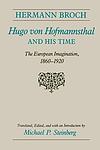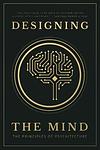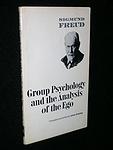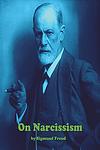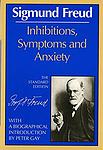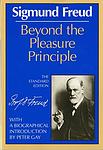The Greatest Austrian "Nonfiction" Books Since 1900
Click to learn how this list is calculated.
This list represents a comprehensive and trusted collection of the greatest books. Developed through a specialized algorithm, it brings together 300 'best of' book lists to form a definitive guide to the world's most acclaimed books. For those interested in how these books are chosen, additional details can be found on the rankings page.
Genres
Countries
Date Range
Reading Statistics
Click the button below to see how many of these books you've read!
Download
If you're interested in downloading this list as a CSV file for use in a spreadsheet application, you can easily do so by clicking the button below. Please note that to ensure a manageable file size and faster download, the CSV will include details for only the first 500 books.
Download-
26. Tongue Set Free by Elias Canetti
"Tongue Set Free" is a captivating memoir that explores the author's personal journey of self-discovery and identity formation. Through vivid and introspective storytelling, the book delves into the complexities of Canetti's multicultural upbringing, his struggles with language and communication, and his quest for freedom and belonging. With poetic prose and profound insights, the author reflects on the power of words, the influence of cultural heritage, and the transformative nature of embracing one's true self.
-
27. Function of the Orgasm by Wilhelm Reich
This book presents a groundbreaking exploration of human sexuality, arguing that sexual repression leads to various psychological disorders. The author, a psychoanalyst, introduces the concept of "orgastic potency", which is an individual's ability to fully surrender and discharge pent-up sexual energy during the sexual act. He contends that societal norms and moralistic attitudes towards sex often hinder this release, leading to various neuroses and other psychological issues.
-
28. Study of Organic Inferiority and Its Physical Compensation: A Contribution to Clinical Medicine by Alfred Adler
This book delves into the concept of organic inferiority and how it physically manifests itself, providing significant contributions to the field of clinical medicine. It discusses the theory that certain physical and mental health issues arise from an individual's perceived inferiority and their subsequent attempts to compensate for it. The book provides a comprehensive study of this theory, exploring its implications for understanding human behavior and its potential applications in therapeutic settings.
-
29. The New Science of Politics by Eric Voegelin
"The New Science of Politics" is a seminal work in political philosophy that explores the nature of political societies, the symbolism of political power, and the essence of modernity. It delves into the evolution of political thought, from ancient civilizations to the modern era, and critically examines the ideologies that have shaped the contemporary political landscape. The author argues that understanding the spiritual and religious dimensions of political reality can provide a more comprehensive view of society and governance. The book is a profound meditation on the philosophy of history and a radical critique of modern political ideologies.
-
30. Hugo Von Hofmannsthal And His Time by Hermann Broch
The book provides a comprehensive examination of the life and work of a prominent Austrian writer and his influence during a period of significant cultural and intellectual change in early 20th-century Europe. It delves into the writer's relationships with contemporaries, his contributions to literature and drama, and his role in the broader context of the modernist movement. The author critically assesses the writer's legacy, exploring the complexities of his artistic endeavors and the societal shifts that shaped his era, offering readers a detailed portrait of a man whose work encapsulated the spirit of his time.
-
31. Selected Prose by Hugo von Hofmannsthal
This collection of prose works by a prominent Austrian writer showcases a diverse range of essays, speeches, and reflections that delve into the cultural, philosophical, and aesthetic concerns of the late 19th and early 20th centuries. The author's masterful use of language and his deep engagement with the intellectual currents of his time, including symbolism and modernism, are evident throughout the texts. The pieces often explore the crisis of language and representation, the role of the artist in society, and the complexities of identity and consciousness, offering readers a profound insight into the transitional period of European thought in which traditional structures were being questioned and redefined.
-
32. The Theory of Economic Development: An Inquiry into Profits, Capital, Credit, Interest, and the Business Cycle by Joseph A. Schumpeter
This book presents a detailed analysis of the mechanisms of economic development, focusing on aspects such as profits, capital, credit, interest, and the business cycle. The author argues that economic development is driven by innovative entrepreneurs who disrupt the status quo, creating new goods and methods of production. He highlights the role of credit in facilitating these innovations, and examines the cyclical nature of economic development. The book also explores the societal and political implications of this process of 'creative destruction'.
-
33. Thoughts for the Times on War and Death by Sigmund Freud
This book is a profound exploration of the psychological impact of war and death on the human psyche. The author, a renowned psychologist, delves into the collective guilt and anxiety experienced by society during wartime, and the denial of death's inevitability as a self-preserving mechanism. He also discusses the disillusionment that arises when the veneer of civilization is stripped away, revealing the primal instincts beneath. The book is a deep, philosophical discussion about the human condition, morality, and the psychological consequences of war and death.
-
34. Group Psychology and the Analysis of the Ego by Sigmund Freud
This book delves into the exploration of group dynamics and mass psychology. The author, a renowned psychologist, theorizes about the nature of groups, how they form, and how individuals within them behave. He also explores the concept of the 'ego' and its role within these group dynamics. The book provides a comprehensive analysis of group psychology, focusing on aspects such as leadership, suggestion and contagion, and the relationship between individual and group mind. It's a significant contribution to the understanding of mass movements and crowd behavior.
-
35. Repression by Sigmund Freud
This book delves into the concept of repression, a fundamental aspect of psychoanalytic theory. The author explores the idea that individuals often repress memories, particularly those associated with trauma or discomfort, pushing them into the unconscious mind. This repression, however, can lead to various psychological issues such as anxiety, depression, and neurosis. The book also discusses the therapeutic process of making the unconscious conscious, enabling individuals to confront and deal with these repressed memories.
-
36. Instincts and Their Vicissitudes by Sigmund Freud
"Instincts and Their Vicissitudes" is a psychological analysis that explores the concept of instincts, their transformation, and their impact on human behavior. The book delves into the complexities of human instincts, proposing that they can be suppressed, redirected, or even reversed, and discusses their role in shaping our actions, desires, and anxieties. The author also examines the relationship between instincts and the conscious and unconscious mind, offering a comprehensive understanding of human psychology.
-
37. On Narcissism by Sigmund Freud
"On Narcissism" is an influential psychological work that explores the concept of narcissism, which is characterized by excessive self-love or self-centeredness. The author delves into the origins and development of narcissism, distinguishing between primary narcissism seen in infants who have not yet differentiated themselves from the outside world, and secondary narcissism in adults. The book argues that narcissism is a necessary stage in normal development, but can also be a characteristic of various mental health disorders if it persists into adulthood. The author also introduces the concept of the ego ideal, which plays a critical role in the development of the self and its relations to others.
-
38. Observations on "Wild" Psycho-Analysis by Sigmund Freud
This book is a critique and analysis of psychoanalysis practiced without proper training or understanding. The author argues that such "wild" psychoanalysis can be harmful and misleading, as it often leads to incorrect interpretations and misdiagnoses. The book also discusses the importance of professional training and adherence to established psychoanalytic methods, emphasizing that psychoanalysis is a complex and nuanced discipline that requires a deep and thorough understanding.
-
39. The Future Prospects of Psycho-Analytic Therapy by Sigmund Freud
This book presents an exploration of the potential future of psychoanalytic therapy as seen by its most famous proponent. It discusses the theory and practice of psychoanalysis, its potential benefits and drawbacks, and the challenges faced by the discipline in its continued development. The author also addresses the potential for psychoanalysis to contribute to a broader understanding of human behavior and mental health, and considers the implications of these insights for the future of therapy and counseling.
-
40. The Origin and Development of Psycho-Analysis by Sigmund Freud
This book offers an in-depth exploration of the birth and evolution of psychoanalysis as a field of study. The author, a pioneer in the field, delves into the intricacies of the human mind, presenting theories on dream interpretation, the unconscious, and the impact of childhood experiences on adult behavior. The book also provides insight into therapeutic techniques used in psychoanalysis, emphasizing the importance of understanding the underlying causes of psychological disorders for effective treatment.
-
41. The Ego and the Id by Sigmund Freud
This book presents a detailed exploration of the human psyche, delving into the complex relationship and interaction between the conscious and unconscious mind. The author introduces his structural model of the mind, dividing it into the id, ego, and superego. The id is driven by primal urges, the ego seeks to mediate between the id and reality, and the superego represents internalized societal norms. The book examines how these parts of the mind conflict and cooperate, and how they influence human behavior and mental health.
-
42. Inhibitions, Symptoms, and Anxiety by Sigmund Freud
This book is a comprehensive exploration of the psychoanalytic theories of anxiety, as well as the role of inhibition and symptoms in mental health. The author delves into the idea that anxiety is a result of repressed libidinal energy and presents his theories on the causes and treatments of neuroses. The book also discusses the relationship between the conscious and unconscious mind, and the impact of childhood experiences on adult behavior.
-
43. Beyond the Pleasure Principle by Sigmund Freud
Beyond the Pleasure Principle is a seminal work in which the author introduces his theory of the death drive, arguing that human behavior is driven not only by the instinct to seek pleasure and avoid pain (the pleasure principle), but also by a fundamental, unconscious compulsion towards self-destruction (the death drive). The book is notable for its exploration of traumatic memory and repetition compulsion, as well as for its controversial departure from the author's previous theories of psychoanalysis.
Reading Statistics
Click the button below to see how many of these books you've read!
Download
If you're interested in downloading this list as a CSV file for use in a spreadsheet application, you can easily do so by clicking the button below. Please note that to ensure a manageable file size and faster download, the CSV will include details for only the first 500 books.
Download



